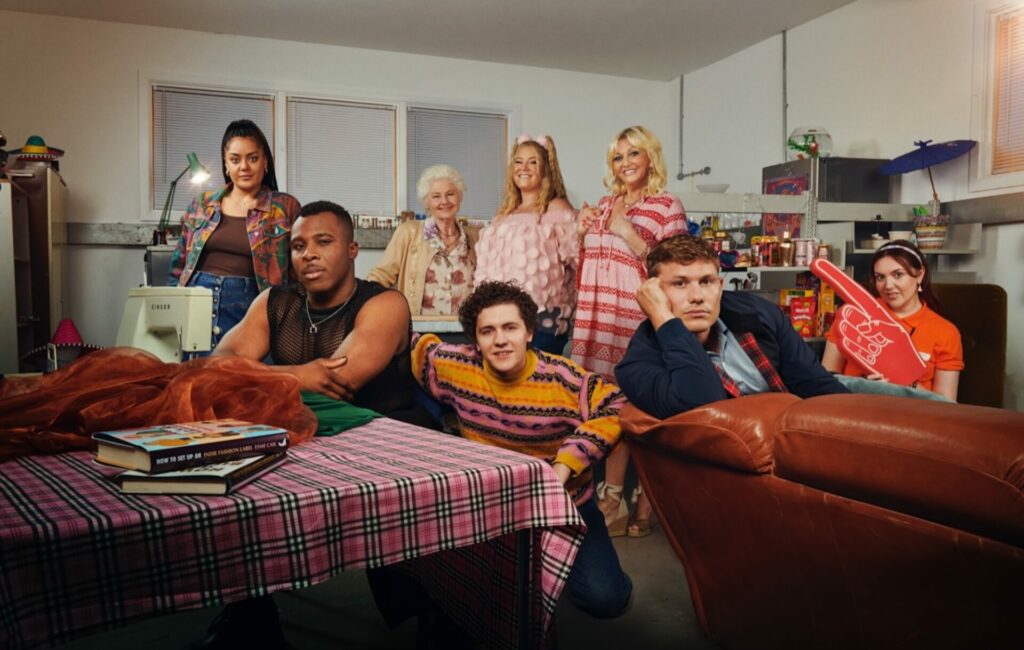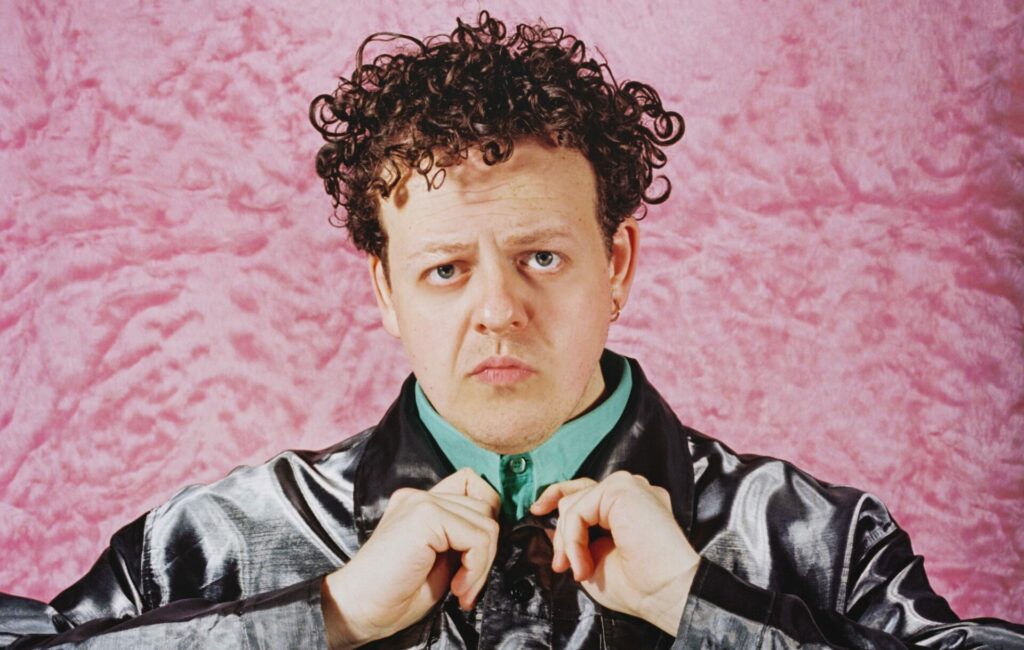Jack Rooke on the ‘Big Boys’ finale and a stagnating mental health conversation
Contains spoilers for the season three finale of ‘Big Boys’

This article contains spoilers for the season three finale of Big Boys and subjects that might be triggering.
Big Boys creator Jack Rooke has spoken to Rolling Stone UK about the show’s emotional finale and its aim to push the mental health conversation forwards.
Rooke’s beloved semi-autobiographical sitcom aired the last episode of its third and final season on Channel 4 last night (February 23).
The start of the final episode sees Rooke appear as himself (Derry Girls star Dylan Llewellyn portrays him for the majority of the show), sitting on a bench next to best friend Danny (Jon Pointing). It mirrors a scene from the final episode of the show’s first season, with Danny struggling with his mental health amid problems with family and at university.
As the conversation between the pair continues, the audience slowly learns that Rooke is speaking from the present day to a former version of Danny, who has since died by suicide. Rooke has said that Danny was written as an amalgam of a few people in his life, one of which died and formed the basis of his 2020 memoir Cheer the Fuck Up. As is the way with Big Boys, this emotional hammer blow is set against potent humour, with Rooke taking a moment in their time-travel conversation to fill Danny in on the abhorrent rise in the price of a Tesco meal deal in the present day.
“The device in the final episode, I pitched that to the producers when I handed in season one,” Rooke told Rolling Stone UK. “I’d had the idea before, but I was unsure. At the end of season one, there’s a scene with me and Danny on the beach where it almost felt like the ending [of the show]. If we didn’t get another series [at that point], here’s how I could have positively done something about someone not writing that letter and not wanting to be here anymore.”

He added: “I think my favourite line from the whole of Big Boys is a line from Danny where he says, ‘I don’t want to leave you. I want to leave me.’ [It’s a show for anyone] who’s ever had a friend struggling with severe mental illness – not just the light dustings of depression and anxiety, but the tough stuff, the stuff that feels rooted in trauma and in childhood and abandonment and an actual physical illness too. That line, for me, sums up what Big Boys is about. In season three, I wanted to explore that more.”
Rooke describes Big Boys as “not actually a show for people who are struggling. It’s a show for the people who are loving somebody struggling.” He adds: “It’s a show for them to feel supported and represented – for the people who are worried about someone else. I think there have been so many shows that depict the individual struggle of mental health and are written from [the perspective of the] person going through it all. In Big Boys, it’s about the best friend character going through it.”
He adds: “In my mind, it’s a show about the people left behind after a suicide, or it’s about the people who are supporting somebody who they’re worried is going to do that. It’s a show about giving them a sense of catharsis and a chance to feel that they’re not alone in this struggle and constant worry. We’ve had so much of the mental health conversation saying to people who are ill that ‘you’re not alone’, and, actually, I want to say to the people that are the loved ones of that person, who are putting in all the support and time and energy and love, that you’re also not alone.”
The finale of Big Boys – a show that has never shied away from knotty, delicate topics not limited to grief and sexuality as well as mental health – arrives at a time of stagnation in the mental health conversation in the UK. While wellness and self-care are still growing as buzzwords, tangible support through healthcare systems continues to fail, as does much of the media’s conversation around the topic.
The issues struck Rooke most strongly when he made a mental health documentary with BBC Three around a decade ago. Happy Man discussed Rooke’s relationship with his own mental health, as well as the loss of his best friend to suicide. “My main reason to make that documentary was to find all the free ways in which people can do stuff for their mental health that isn’t just sitting around talking,” he said. “The comic irony of that is that all it showed was me sitting around talking, because they just didn’t want to make it anything [apart from something] formulaic. You do the doc, talk to this person, maybe you cry halfway through the episode. People are really affected by tears. Talk about talking. I was like, ‘Oh, this could be so much better if we actually looked into the solutions a bit more.’
“With Big Boys, I wrote it from a place of real frustration at how the mental health conversation was culturally depicted, and so I did want it to have those elements of chosen family and interventions,” he added. “There are times where I sit Danny down and say, ‘Here’s my experience, and here’s how you should think about it’. Then there’s times where Danny is forced to call up the doctors and do something about it. I wanted to depict at least a flavour of the solutions that can happen. There’s only so much that I can write in a comedy – it’s still got to be funny – but I hope we’ve achieved something that was not there before it.”
From Rooke’s perspective, the mental health conversation is struggling to move beyond “just talking about talking.” He said: “I think it’s because people are really scared to delve any deeper than that. It’s quite easy to be like, ‘Just talk and open up’. What does that actually look like in reality? That is such a difficult thing for people who are struggling with stuff that doesn’t make sense in their brain. The campaigns of, ‘Let’s talk over a cup of tea’… for a lot of people, that is not gonna fix much. It’s definitely a start, but we’ve been talking about that shit for eight or nine years now, and it hasn’t progressed beyond the very basics.”
It also intersects with “problematic” reality TV shows continuing to be churned out. “Loads of people on Love Island are killing themselves all the time; loads of people on these reality shows are leaving and not feeling like they’re able to cope in life,” Rooke said. “Big Boys is coming out on the five-year anniversary of Caroline Flack’s [death by suicide], and I still feel like that is one of the saddest, most horrific examples.
He added: “When you look at Jeremy Kyle and that show, and what the legacy of that is, that people were killing themselves over false lie detector tests, ITV can do their ‘get talking’ campaigns, but it’s like putting a plaster on a massive wound – it’s going to do fuck all. Change how you think about programming and change how you’re making people hate, because nobody needs to deserve that level of hate.”
For mental health support, you can contact CALM, Samaritans or Mind. In an emergency, please call 999.
All three series of ‘Big Boys’ are available to stream on Channel 4, with seasons one and two available via Hulu in the US.
